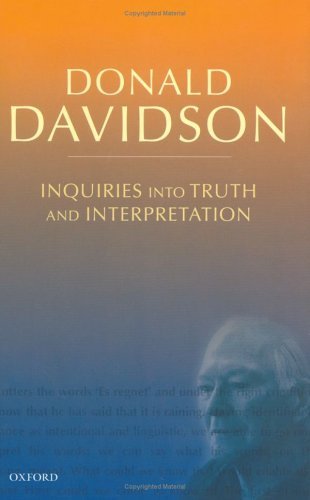What do you think?
Rate this book


320 pages, Hardcover
First published April 26, 1984
The primary process of radical interpretaion is that of distributing truth conditions to sentences in such a way as to maximise agreement and truth across the wides possible range of utterances and contexts of utterance. Radical interpretation is thus essentially holistic in nature.